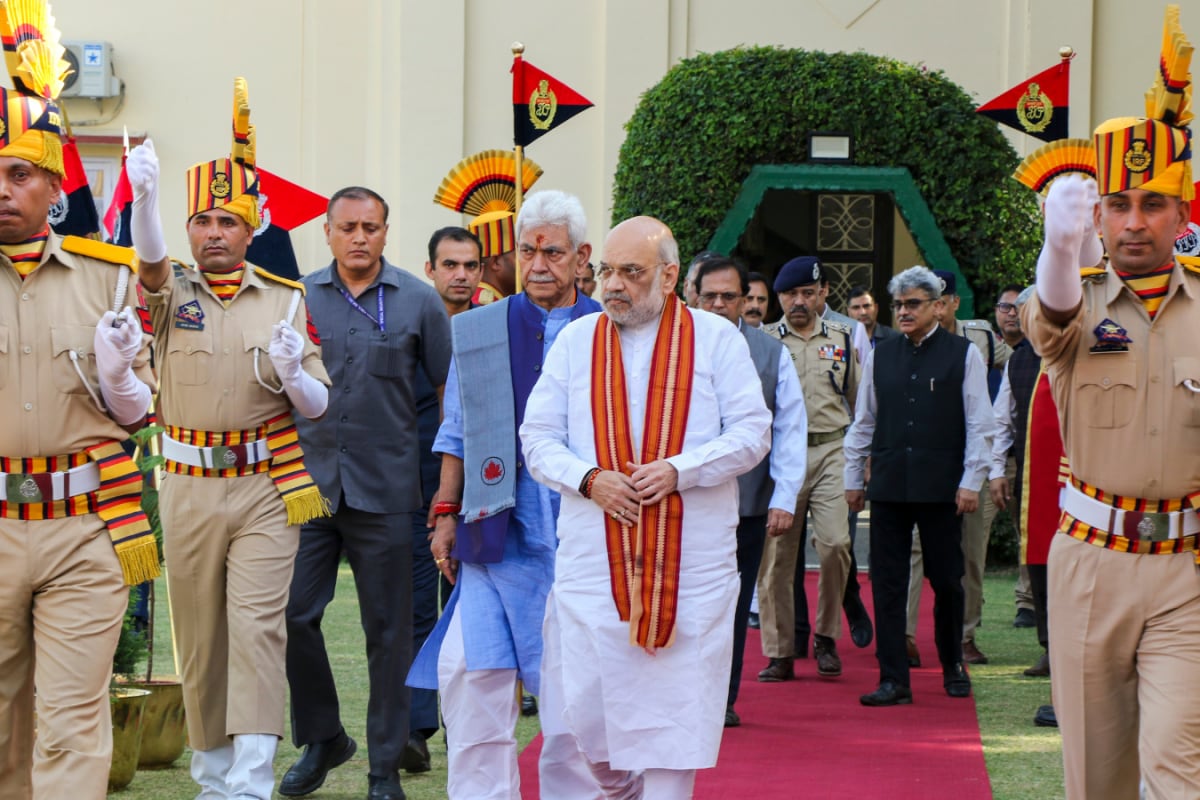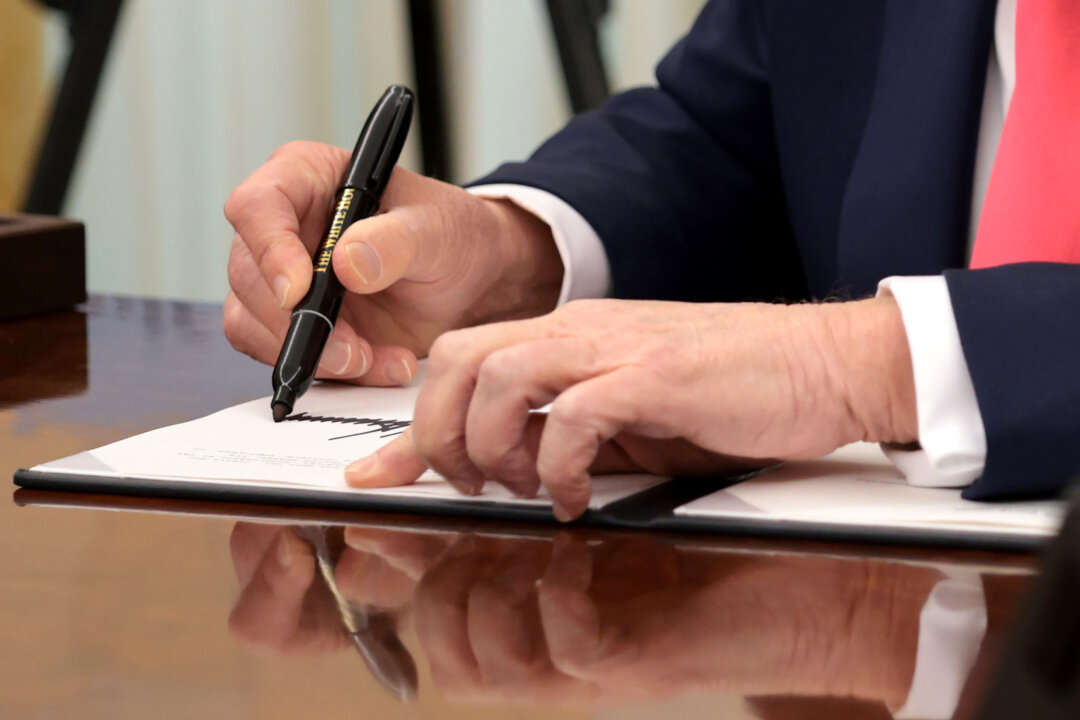Shah’s three-day visit to Jammu and the Kashmir Valley was a mix of realpolitik, hard talk with the administration and security brass, and emotional commiseration with the families of J&K’s martyred bravehearts. Another visit to Jammu and Kashmir by Union Home Minister Amit Shah has ended with the impactful and committed message that while the development matrix relentlessly marches forward, security of this strategically located region remains top priority for the government. Consequently, Shah’s three-day visit to Jammu and the Kashmir Valley was a mix of realpolitik, hard talk with the administration and security brass, and emotional commiseration with the families of J&K’s martyred bravehearts.
It was also a trip intent on upgrading the security and para-security infrastructure through grass root level interaction with key stakeholders. New Delhi, through Shah’s visit, sent a clear signal that restoring normalcy in the Union Territory (UT), upgrading surveillance technology on the border and providing improved and gender-specific facilities for security personnel is the need of the hour. Of late, there’s been a significant increase in Pakistan’s support to cross-border terrorism and non-conventional warfare against India and this has put immense pressure on troops guarding the borders.

There have been a number of encounters and several soldiers and police personnel have made the ultimate sacrifice in the line of duty. This visit saw Shah’s famed precise decision-making and action skill in full flow. He was not far off the mark when he said India’s territorial integrity and sovereignty is non-negotiable.
So, what were the major takeaways from this visit? Vigilance against Terror The Union Home Minister used his three-day stay in Jammu, Kathua and Srinagar to review J&K’s overall security situation. In this regard, he directed the top brass of the region’s administration and security apparatus that implementation of the “Area Domination Plan" and “Zero Terror Plan" must always be in “Mission Mode". Lt Governor Manoj Sinha, Union Home Secretary Govind Mohan, Director (IB) Tapan Deka, Chief of Army Staff General Upendra Dwivedi, GOC-in-C (Northern Command) Suchindra Kumar, Chief Secretary Atal Dullo, J&K DGP Nalin Prabhat, heads of all Central Armed Police Forces (CAPFs) and other senior officials, were told by Shah that the aim of the government is to ensure lasting peace and removing terrorism from J&K.
Security agencies received well deserved praise for significantly reducing terror-related incidents, infiltration and preventing the recruitment of youth by terrorist organisations. “Due to sustained and coordinated efforts of the Modi Government, the entire terror eco-system nurtured by elements inimical to our country in Jammu and Kashmir has been crippled," Shah said. Shah directed all security agencies to continue with their coordinated approach to eliminate the terror ecosystem, which though almost neutralised, had the potential to resurface again.
The gains from the abrogation of Article 370 must be sustained to achieve the goal of a “terror free J&K", Shah said. Comprehensive Approach Chief of Army Staff, General Upendra Dwivedi was present during Shah’s discussions on security related issues and used his vast experience of anti-terrorist operations to translate the Home Minister’s overall directives into specific orders after holding wide ranging discussions with army commanders on ground. The Centre’s holistic approach and praiseworthy efforts in synergising diplomatic, political and bureaucratic efforts to complement anti-terrorist operations being conducted by the security forces will definitely help in curbing this menace.
Upgrading of Paramilitaries On the Jammu leg of his three-day visit to J&K, Shah made it a point to meet and interact with Border Security Force (BSF) officers and troopers at “Border Outpost Vinay" in Kathua district. His statement that the BSF’s role in safeguarding the nation is as significant as that of the Indian Army, especially when it involved conflicts with Pakistan attracted much praise. Infrastructure and technology upgrade of the paramilitaries formed a key part of the visit.
Shah inaugurated eight Border Security Force (BSF) women-friendly barracks, high-mast lights, a G+1 tower and a composite BOP, all of which were constructed at a cost of Rs.47.22 crore.
He added that two types of electronic surveillance systems would soon be deployed along India’s international borders. After their installation, Indian troops would find it technologically easier to receive and respond to information and/or any enemy action. The aim of these improved habitat changes and initiatives was to strengthen security arrangements and help BSF personnel to perform their duties better.
Shah mentioned the entire nation is aware that the BSF is India’s first line of defence and that the force has always performed its responsibilities exceptionally well. Tributes to Bravehearts Shah also used his visit to pay tribute to J&K’s most recent brave hearts and commiserated with their still emotionally distraught families. Meetings were organised with the families of BSF Assistant Commandant Vinay Prasad (martyred in 2019), Selection Grade Constable (SGCT) Jaswant Singh and Deputy Superintendent of Police Humayun Bhat (martyred in 2023).
Humayun, 32, was one of four officers killed during an encounter with terrorists in South Kashmir’s Kokernag area on September 13, 2023 and was awarded Kirti Chakra (Posthumous) on Independence Day 2024. During a solemn ceremony, he also handed over appointment letters to nine next of kin of the Bravehearts, honouring the supreme sacrifices made by their loved ones in the line of duty. Testing 26 Initiatives The Home Minister revealed that over 26 defence-related technological initiatives are currently being tested, including anti-drone technology, tunnel identification technology and electronic surveillance.
He expressed confidence that by next March these new initiatives would be in place to make it easier for soldiers to perform their duties. Welfare Schemes The government has launched several welfare schemes for security forces, including Ayushman CAPF, ex-gratia payments, accidental death insurance coverage under the CAPF salary package scheme, the Unified Pension Scheme, the Prime Minister Scholarship Scheme (PMSS), and E-Housing. Shah made a compassionate appeal to the Jammu and Kashmir administration to ensure the future welfare of 12-year-old Yuvraj Singh, the son of brave heart SGCT Jaswant Singh.
Kashmiri Pandit Rehabilitation Issue Shah said the rehabilitation of Kashmiri Pandits and their return to J&K after more than three-and-a-half decades would hopefully be addressed by the Centre in the coming days. Overall Assessment The Union Home Minister’s frequent visits to J&K and the slew of welfare and public empowerment measures initiated to ensure both development and security in this region clearly indicates the Centre’s seriousness of walking its talk on J&K. Thanks to these initiatives, locals have started realising Pakistan’s motivated game-plan of creating unrest in Kashmir in order to further its self-serving interests and public perceptions are quickly changing for the better.
The author is Editor of Brighter Kashmir, Author, TV commentator, political analyst and columnist. Views expressed in the above piece are personal and solely those of the author..
Politics

OPINION | Takeaways From Union Home Minister Amit Shah's J&K Visit

Shah’s three-day visit to Jammu and the Kashmir Valley was a mix of realpolitik, hard talk with the administration and security brass, and emotional commiseration with the families of J&K’s martyred bravehearts.















